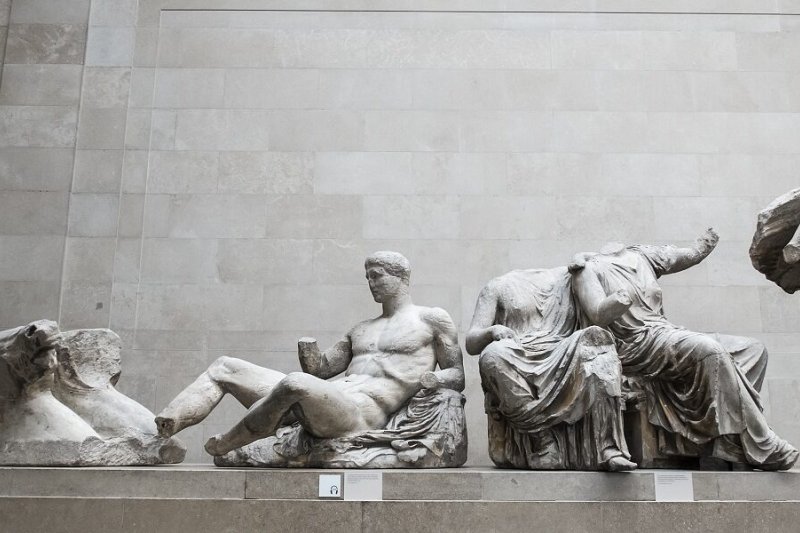Greece, UK Start Talks for Return of Parthenon Sculptures
Greece has welcomed the news from the UNESCO secretariat that it has a positive approach to its centuries-old demand for the return of marble sculptures, once part of the Greek Parthenon, on display at the British Museum.
It is about ancient reliefs and 2500-year-old statues, which present scenes from Greek mythology, known as the Marbles of the Parthenon or the "Marbles of Elgin", named after Lord Thomas Bruce Elgin, the former British ambassador to the Ottoman Empire in early 19th century, which included Greece.
In 1801, he obtained legal permission to take these pieces of marble, statues, carved pieces of the Parthenon's temple to London, and 15 years later sold them to the British government, along with hundreds of other antique objects from Athens.
"The return of the sculptures is not just a simple repatriation, but the reunion of the worldwide icon of the Parthenon monument, which seeks those missing sections and parts," said Nikos Stampolidis, director of the Acropolis Museum.
As already reported by the French newspaper Le Figaro, which has revealed what was decided at the UNESCO Council meeting in Paris, the Ministers of Culture of Greece and the United Kingdom will stay at the dialogue table to negotiate for the return or as it is called in Greece, the reunification of parts of the ancient Parthenon.
But although only the date of the meeting is expected, the British side continues to insist that the sculptures in question became part of the British Museum legally.
While in Greece, more and more often repeat the saying of Lord Byron at the time, as well as the former Minister of Culture and prominent Greek artist Melina Mercury a few decades ago given to the BBC, that Lord Elgin committed a theft. The moment favors the request of the Greek side as almost 59% of the British surveyed are in favor of the return of the sculptures to Athens.














